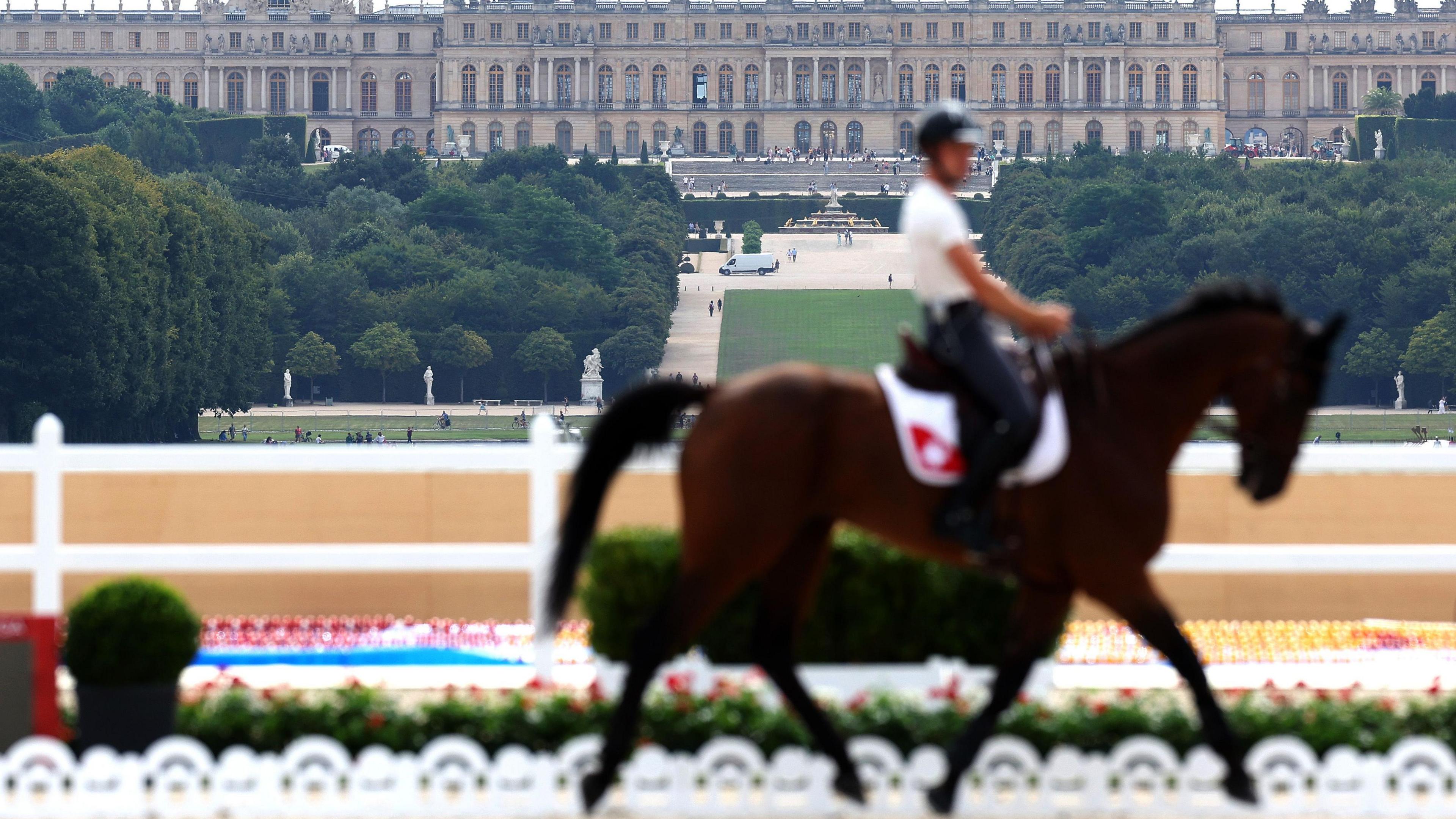Horse abuse sanctions strengthened after scandals

Changes to regulations will come into effect on 1 January 2025
- Published
Punishments for those found to have abused horses have been strengthened by the body which governs equestrian sports globally.
The International Federation for Equestrian Sports (FEI) voted through amendments to regulations at its annual general assembly in the United Arab Emirates.
They include increasing the length of bans handed out to any rider, owner or team member found to have breached its standards for the ethical treatment of competition horses.
'Top-end' horse abuse can now be punished by a ban of between three and 10 years, up from between two and five, while the tariff for 'maximum' level abuse is between 10 years and life.
The sanction for horse abuse which the FEI deems 'low-end' has risen from a ban of up to three months to up to six months, while the 'mid-range' sanction has been shifted up from between three months and two years to between six months and three years.
The changes which come into effect on 1 January have been made following a series of abuse scandals in equestrian sports in recent years.
The most prominent controversy featured three-time Team GB Olympic gold medallist Charlotte Dujardin, who was barred from taking part in dressage events at this year's Games in Paris after a video of her excessively whipping a horse was shared online.
The 39-year-old lost the majority of her sponsorships in the aftermath and has not made any public comment since publishing an apology for the incident on social media.
Dujardin is the subject of an ongoing disciplinary investigation by the FEI, who suspended her from competition in July.
The amended rules also include the implementation of sanctions for 'witness intimidation and retaliation' for the first time.
Meanwhile, punishment for 'bringing the FEI and/or equestrian sport into disrepute' has also been raised, from a previous maximum of one year to between five years and life.
Alterations to anti-doping rules mean the FEI is entitled to request information about the whereabouts of any horse registered with the organisation from its trainers and owners, and that horses will be subject to out-of-competition doping tests.
Samples from the hair and skin of horses can also now be included in anti-doping tests, in addition to blood and urine.